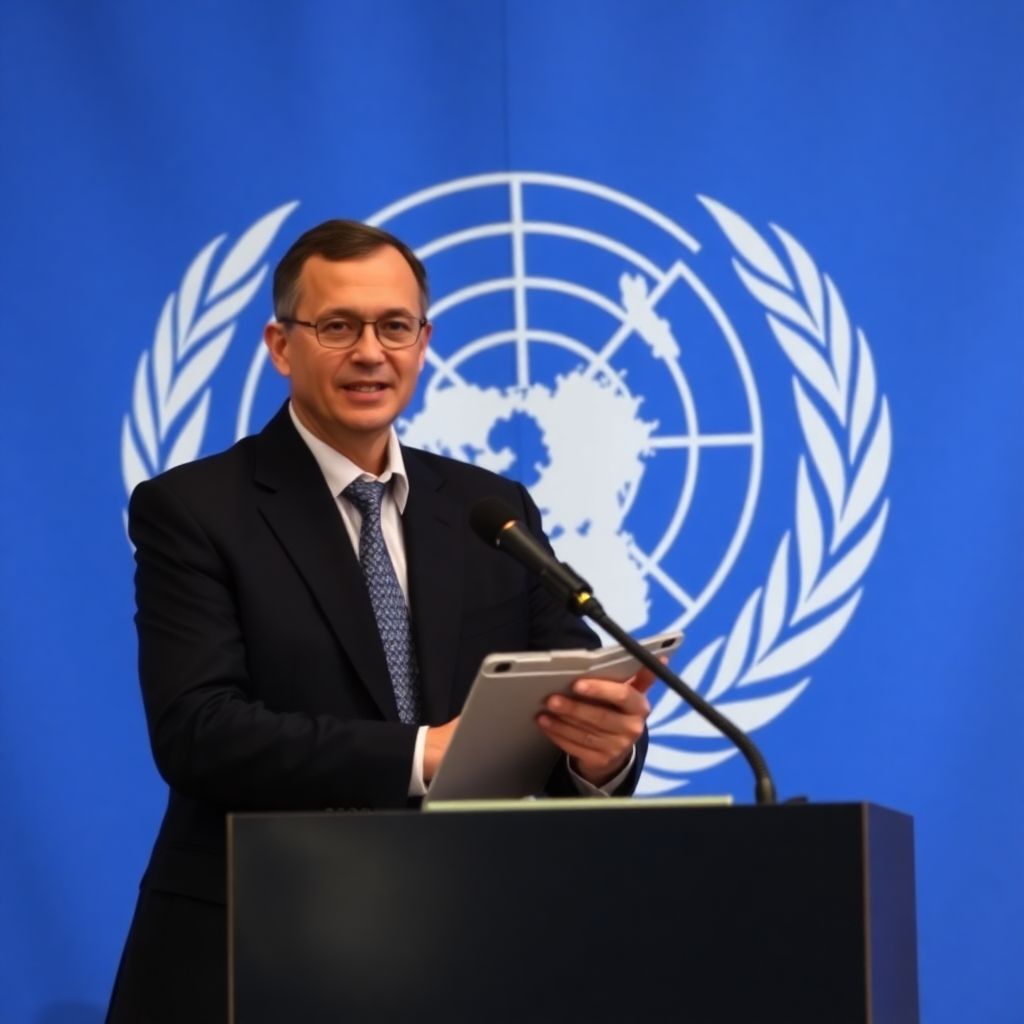The United Nations is taking a significant step toward promoting blockchain adoption among global governments by unveiling two major initiatives: a blockchain-focused educational program and a strategic advisory group. These efforts, led by the United Nations Development Programme (UNDP), are designed to assist national governments in understanding, implementing, and scaling blockchain solutions within their public infrastructure.
Robert Pasicko, head of the UNDP’s financial technology unit, AltFinLab, revealed that the organization is preparing to launch a blockchain training academy specifically for government personnel. This program, expected to commence within weeks, will initially collaborate with four selected governments to test and refine its approach. Approval for the initiative is anticipated within one to two weeks, with full operation following shortly after.
Pasicko emphasized that the educational component is just the beginning. In addition to training, the UNDP will support participating governments in navigating the complexities of blockchain integration — moving from theory to practical applications. According to Pasicko, internal research conducted by the agency has identified over 300 potential use cases where blockchain can enhance governance, transparency, and service delivery.
In parallel, the UNDP is also working on establishing a UN-led blockchain advisory group. This council aims to bring together industry leaders and policymakers to provide strategic guidance on blockchain policy and deployment. Discussions around the advisory body began during a recent UN general assembly in New York, where representatives from major blockchain organizations — including the Ethereum Foundation, Stellar Foundation, and Polygon Labs — were present. If everything proceeds as planned, this advisory panel could be operational within two to three months.
The initiatives build upon the foundation of the UNDP’s internal blockchain academy, originally created to educate UN staff on emerging technologies. Now, the focus is expanding beyond internal expertise to equipping national authorities with the knowledge required to lead digital transformation efforts.
Pasicko also discussed real-world pilot projects already underway in 20 countries, aimed at enhancing financial inclusion through blockchain. One example is a partnership with Decaf, a crypto-powered payment platform that provides access to financial services without relying on traditional banks. This model reflects a broader shift in how financial infrastructure may evolve, with Pasicko drawing parallels to the obsolescence of public phone booths and speculating that ATMs may soon face a similar fate.
He noted that the changing landscape of financial services is not necessarily tied to one form of digital currency. Instead, he envisions a future shaped by a mix of cryptocurrencies, private stablecoins, and central bank digital currencies (CBDCs), depending on regional contexts. Nevertheless, the common thread is the diminishing role of intermediaries. “In most cases, all you need is a smartphone and an internet connection to complete a transaction,” Pasicko explained, highlighting the growing accessibility of decentralized financial tools.
However, Pasicko cautioned that the democratizing potential of technology also comes with risks. He compared blockchain to fire — a tool that can either provide warmth or cause destruction, depending on how it’s wielded. He warned that without responsible governance, blockchain could deepen existing inequalities instead of bridging them.
As part of its broader mission, the UNDP aims not only to promote the adoption of blockchain but also to ensure that its implementation serves inclusive, sustainable development goals. This includes strengthening data transparency, improving public sector efficiency, and enabling secure digital identities for underserved populations.
The upcoming blockchain academy for governments will feature comprehensive training modules covering the foundational principles of blockchain, policy considerations, regulatory frameworks, and case studies of successful deployments. Instructors will include experts from academia, industry, and multilateral organizations.
Moreover, the curriculum is expected to include hands-on workshops where participants can engage in scenario planning and pilot design. This experiential learning approach is intended to bridge the knowledge gap between technical innovation and public policy, helping governments make informed decisions about blockchain investments.
The advisory group, once formed, will function as a think tank and policy lab. It will explore best practices, establish ethical guidelines, and develop frameworks for cross-border collaboration on blockchain governance. Given the decentralized nature of the technology, international cooperation is essential to ensure interoperability and prevent regulatory fragmentation.
Another key area of focus for the UNDP is the potential of blockchain to address issues such as corruption, inefficient supply chains, and lack of trust in public institutions. By leveraging the immutability and transparency of blockchain ledgers, governments can enhance accountability in public procurement, aid distribution, and land registry management.
Furthermore, the UNDP sees an opportunity to align blockchain adoption with environmental and climate goals. Blockchain can support sustainability efforts by enabling traceable carbon credits, enhancing renewable energy certificate tracking, and facilitating climate finance through transparent smart contracts.
In regions where financial systems are underdeveloped or exclusionary, blockchain-based applications can provide vital access to digital identity, credit, and remittance services. This is particularly impactful in post-conflict or disaster-prone areas, where traditional infrastructure is often unreliable or absent.
To ensure equity in access, the UNDP is also exploring partnerships with local innovators and NGOs to co-create solutions tailored to specific regional challenges. These grassroots collaborations aim to empower communities by involving them directly in the design and deployment of blockchain tools.
As the world increasingly adopts emerging technologies, the UNDP’s initiative serves as a reminder that digital transformation must be inclusive, ethical, and guided by public interest. With the launch of its blockchain academy and advisory body, the United Nations is positioning itself as a global catalyst for responsible blockchain adoption — one that prioritizes human development as much as technological progress.

